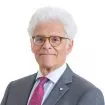A summary of the day's activities of Friday, September 18, follows.
Federal Government Relief Measures
- There are no federal government relief measures to announce.
Statement of Prime Minister Justin Trudeau
- The Prime Minister did not hold a press conference today.
Federal Government Briefings
Canada's Chief Public Health Officer Dr. Theresa Tam and her deputy Dr. Howard Njoo gave an update on COVID-19 case numbers in Canada.
There have been 140,867 cases of COVID-19 in Canada, including 9,200 deaths. Eighty-seven per cent of people have now recovered. Labs across Canada tested an average of 47,111 people daily over the past week with 1.4 per cent testing positive.
Yesterday, 1,120 cases were reported. However, only 872 of the cases where newly identified yesterday. Due to a reporting backlog in Quebec, 248 are form cases identified earlier in the week. With inclusion of these backlogged cases, an average of 849 new cases have been reported daily during the most recent seven days.
Dr. Tam reiterated that the ongoing increase in the national daily case counts is an indicator of accelerated epidemic growth. She said, "This situation increases the likelihood that we would lose the ability to keep COVID-19 cases at manageable levels."
Dr. Njoo is not prepared to say that we are now going through a second COVID-19 wave at the national level because trends vary greatly from province to province, region to region. He did acknowledge that the increase in case numbers in the four biggest provinces (B.C., Alberta, Ontario and Quebec) is worrisome.
Ottawa's medical officer of health Dr. Vera Etches said the city is experiencing its second wave of the COVID-19 pandemic. The announcement came as Ontario's daily report for today confirmed 61 more people in Ottawa have COVID-19, which would bring the number of residents who have tested positive to 3,547.
Dr. Tam echoed the views of other health experts and epidemiologists when expressing her preference for target restrictive measures to contain the spread of COVID -19. She would refrain from using "blanket restrictions" as much as possible.
Dr. Tam also noted that provinces are beginning to prioritize the use testing centres to avoid long line-ups. Alberta is now recommending that testing centres focus efforts on vulnerable people and people with symptoms. Ontario is expected to follow suit shortly.
During the news conference, the Prime Minister's office issued press releases announcing that Canada's COVID-19 exposure notification app is now available in New Brunswick and Saskatchewan.
Statements of Quebec Premier François Legault, Manitoba Premier Brian Pallister, Ontario Premier Doug Ford, and Alberta Premier Jason Kenney.
At a news conference in Ottawa, Quebec Premier François Legault, Manitoba Premier Brian Pallister, Ontario Premier Doug Ford, and Alberta Premier Jason Kenney discussed their priorities for the upcoming federal Speech from the Throne.
Premier François Legault officially took over the reins as Chairman of the Council of the Federation (COF) from Saskatchewan Premier Scott Moe. Manitoba Premier Brian Pallister is the Vice-Chair of the COF.
On behalf of all provinces and territories, Premier Legault called on the federal government to increase funding in health care and infrastructure and to come to the aid of provinces (i.e. Alberta) that are experiencing declining revenues by easing the fiscal stabilization program. Premier Legault said, "We need a fair and equitable partnership with the federal government."
Regarding health care, provinces and territories are requesting the federal government to increase its share of funding of health care transfers (HCT) from 22% to 35% on an adjusted and ongoing basis, beginning in the 2021-22 fiscal year. This amounts to $70 billion, an increase of $28 billion from $42 billion.
Premier Legault said the change to the funding formula for health is needed to address the structural pressures provinces are facing in the delivery of health care. Provincial health care expenditures are increasing by 6 per cent each year consistently outstripping provincial revenues. This structural imbalance is due to the evolution in drugs, technology and the pressures of an aging population on the health care system. Federal funding of $42 billion for health care is no longer sufficient to meet the needs of the provinces.
Premiers unanimously agree that health care is the key priority. They also agree that health care is a critical priority to support the relaunch of their economies. Premier Ford repeated on several occasions, "If we don't have our health we don't have an economy."
Regarding fiscal stabilization, Alberta Premier Jason Kenney highlighted that each year Alberta has contributed more than it received under the fiscal stabilization program. He said, "Now, Canada has to be there for Alberta and other provinces as they face the most serious economic and fiscal challenges since the Great Depression."
Regarding infrastructure, Premiers called on the federal government to reduce delays in federal approvals for current infrastructure projects and to step up with an additional $10 billion per year over 10 years for shovel-ready projects.
Statement of Quebec Ministers
Quebec Deputy Premier and Public Security Minister Geneviève Guilbault held a news conference in Quebec City where she unveiled details about the use of police services to enforce the province's public health measures aimed at controlling the spread of COVID-19. Acting Director of the Sûreté du Québec Johanne Beausoleil, Quebec City police director Sylvain Caron, and Montreal police director Robert Pigeon, joined Deputy Premier Guilbault.
She announced the launch of a "massive and visible" police operation called OSCAR (Opération systématisée de comportements à risque) targeting 1,000 licensed establishments that serve alcohol (bars and restaurants) over the weekend to enforce compliance with public health measures. Deputy Premier Guilbault reminded reporters that police officers have the power to impose fines ranging from $400 to $6,000 for non-compliance. While the operation is province-wide, police will target efforts on the eight regions of Quebec that are in pre-alert mode (yellow COVID-19 alert-level): Bas-Saint-Laurent, Capitale-Nationale, Estrie, Montréal, Outaouais, Chaudière-Appalaches, Laval and Montérégie.
Deputy Premier Guilbault pointed out this operation is part of the government's efforts to slow the spread of COVID-19 in the province. The objective of the police operation is to ensure that regions of Quebec that are in the green COVID-19 alert-level – which is the minimum alert-level - remain at that level while regions in the yellow pre-alert mode can remain in pre-alert mode or revert back to the green COVID-19 alert-level rather than progress to the orange COVID-19 alert-level.
Elsewhere in Canada
Alberta
Yesterday, Alberta's Chief Medical Officer of Health Dr. Deena Hinshaw announced 146 new cases of COVID-19 and no deaths. Dr. Hinshaw also announced that Alberta is shifting to targeted COVID-19 testing, meaning that voluntary testing is no longer recommended for those with no symptoms who do not belong to a high risk group.
The province announced Alberta's Investment and Growth Strategy, a $75 million initiative led by the Ministry of Jobs, Economy and Innovation. The strategy builds on Alberta's existing strengths- including energy, tourism and agriculture- as well as emerging sectors like technology, in order to aid in Alberta's economic recovery. Minister of Jobs, Economy and Innovation Doug Schweitzer, Minister of Advanced Education Demetrios Nicolaides and Minister of Services Nate Glubish have also announced consultations with the technology sector to modernize Alberta's intellectual property laws.
The province released an amended public health order outlining updated requirements for health care facilities in Alberta, to lessen the impact of the public health emergency caused by COVID-19. The province also released updated public health guidance documents for restaurants, cafes, pubs and bars, as well as for office buildings.
British Columbia
Yesterday, Minister of Health Adrian Dix and British Columbia's Provincial Health Officer, Dr. Bonnie Henry, announced 165 new cases of COVID-19 and one death. Currently, 57 individuals are hospitalized, 22 of whom are in intensive care. There are currently 1,705 active cases of COVID-19 in the province and 2,949 people under active public health monitoring for known exposures.
Dr. Henry announced a new made-in-BC sample collection program has been launched for all K-12 students across the province. It is one of the first of its kind worldwide. Children aged four to 19 can now access a mouth-rinse gargle at COVID-19 testing centres. Unlike the nasopharyngeal swab method, this new method does not require a health-care professional to collect the sample.
Premier John Horgan and Minister of Finance Carole James released Stronger BC for Everyone: BC's Economic Recovery Plan. The plan outlines the latest steps that the province is taking to help people, businesses and communities recover from COVID-19. The plan includes $1.5 billion in economic recovery spending measures that respond to immediate needs.
The Ministry of Tourism, Arts and Culture released a statement about the impact BC's COVID-19 Recovery Plan will have on the province's tourism industry. The plan includes a new Tourism Task Force, investments into municipalities and tourism development partnership initiatives, infrastructure funding and grants for small businesses, among other measures.
Rob Fleming, Minister of Education, announced that in the first week of in-class learning, 85% of K-12 public school students returned to school. Minister Fleming said, "It's been incredible to see so many students being able to connect with their teachers, support staff and classmates again, and that school districts developed remote options for other students across BC".
The content of this article is intended to provide a general guide to the subject matter. Specialist advice should be sought about your specific circumstances.



